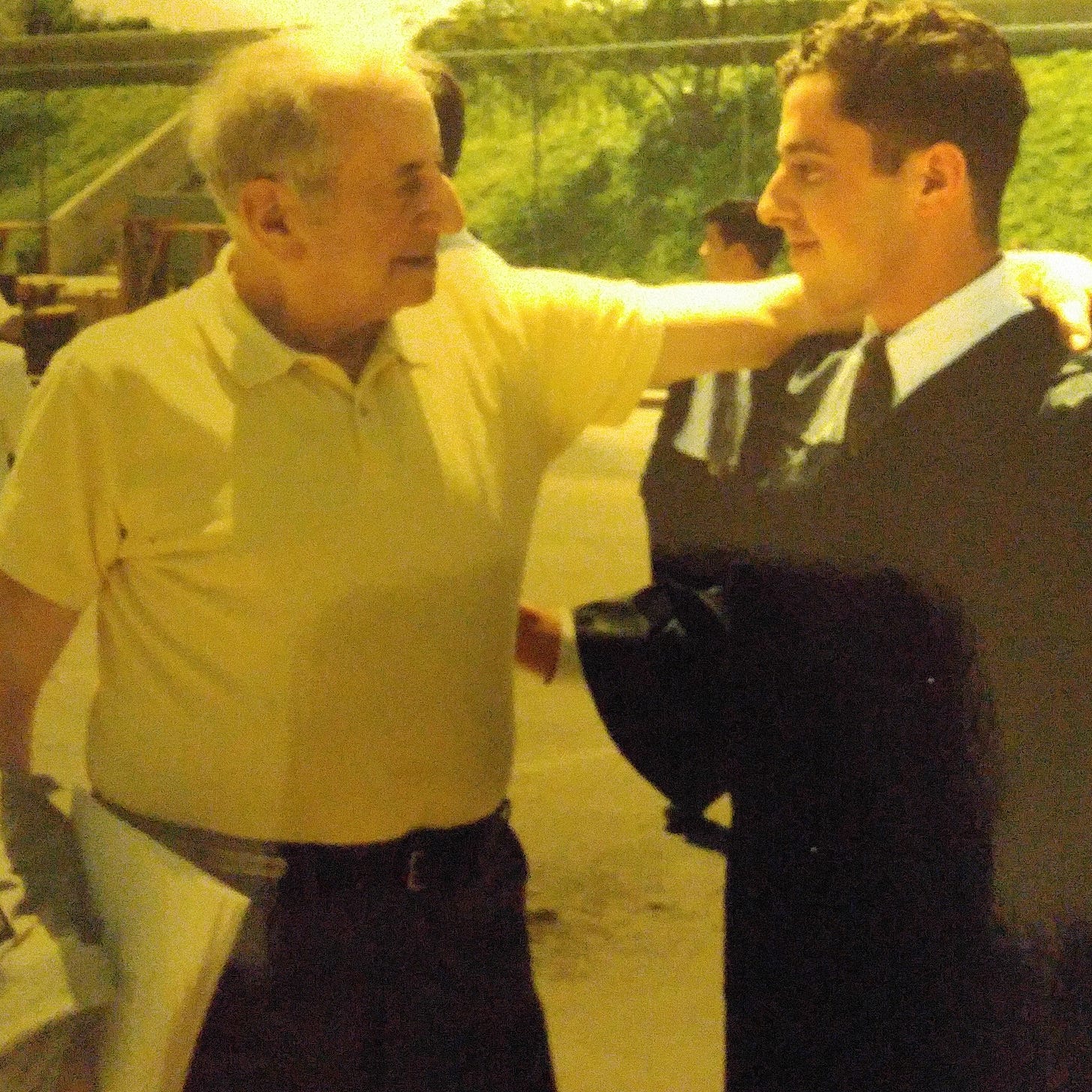How To Eat
the subtle art of dietary hygiene
When I was growing up my Papa (Grandfather) was one of my best friends. He believed in me and inspired me and loaded my brain with values that I wanted to carry forward.
Papa escaped the holocaust and had a tremendous amount of trauma from that experience.
PTSD was an understatement.
And, in his day, there was literally no support or resources for people who saw what he saw and experienced what he experienced.
Somehow he managed to pour a lot of love into his grandchildren through all of it and we represented the sacrifice he made and the hope he had. At the same time each week, we would speak and have a lengthy review of current events, my challenges, my accomplishments, and I would get a lecture with good advice. It was done in such a loving way that it felt safe and welcome to me.
Being around him I couldn’t help notice when he would have a trauma. It was sad to watch and I worried about him.
One of his trauma bits would be the speed he would eat. With no exaggeration he would be done with his food before any of us had one bite. His anxiety, stress, and fear would preclude the normal rhythm of eating. Not surprising he would belch a lot and his belly always looked uncomfortable. I knew there was something odd about it but as one of my hero’s I thought perhaps that is the way I should be. It’s taken years of retraining myself to slow down and give myself the pleasure of eating in what is called Dietary Hygiene.
Lack of dietary hygiene is commonplace in digestive disorders.
Practicing dietary hygiene can improve symptoms dramatically. I have seen 40% improvement in digestive symptoms related to IBS, Gastritis, Dyspepsia, and GERD just by following these practices.
Implement these steps bit by bit and you likely will see improvement.
The digestive process starts with the first smell and first glance of the food you’re partaking in. Your brain sends signals to the limbic system to release salivary enzymes such as amylase. Looking at your food and smelling the food can promote early secretions of enzymes that will help you break down your food. Saying a blessing of gratitude is always a nice thing to do before you to take your first bite as well.
The stomach has the ability to handle gas and fluid but only to a certain capacity. When you eat portions consider that the stomach is just a little bit over the size of your fist. Be mindful of giving it more than it can handle.
The stomach needs adequate time to produce the appropriate chemical processes to break down food. A quick rushed meal will promote inadequate digestion of food. Whereas a well-paced meal in a relaxed environment can help the enzymatic process be fully complete. Chew your food thoroughly. Putting down your fork or utensil between bites is always a great way to slow down.
Grazing behavior, meaning eating every 1 to 3 hours, can disrupt the household cleaning of your gut and small intestine which is called the inter-digestive process or migrating motor complex. Attempt to wait 3 to 5 hours between meals to allow the migrating motor complex to clear the small intestine.
Change the way you see eating. Similar to playing a sport or giving a presentation; there is an optimal state of being to have while eating. This is the rest and digest state. In this state the ventral vagal branch of the vagus nerve is activated and our brain and body is ready for connection, laughter, good circulation, digestive secretions, laughter, and relaxation. Uh…who is doing that? Get my point? We need to change this!
Additional tips if you are really struggling:
Thirty minutes before eating, consider having a room temperature glass of lemon water or some ginger tea.
A good brand of digestive bitters before eating is also helpful. I like Better Bitters by Herb Pharm sprayed in my mouth 10 minutes before eating. This can really help start the digestive process.
If you have suffered from some type of digestive disorder, take digestive enzymes with each meal to help facilitate good digestion. Discuss adequate dosing with your provider.
From all this experience, I see that we must approach eating as something that is safe, deserving, appreciated, and allow our body to get to a point where it has the right stuff to digest well.
Bon Appetit, Betay-avon, Buon Appetito, Buen Provecho, Guten Appetit, Priyatnogo appetita
Yes…ENJOY…your meal




Wow so much good information here - thank you for sharing, and I also loved your personal story about your Papa.